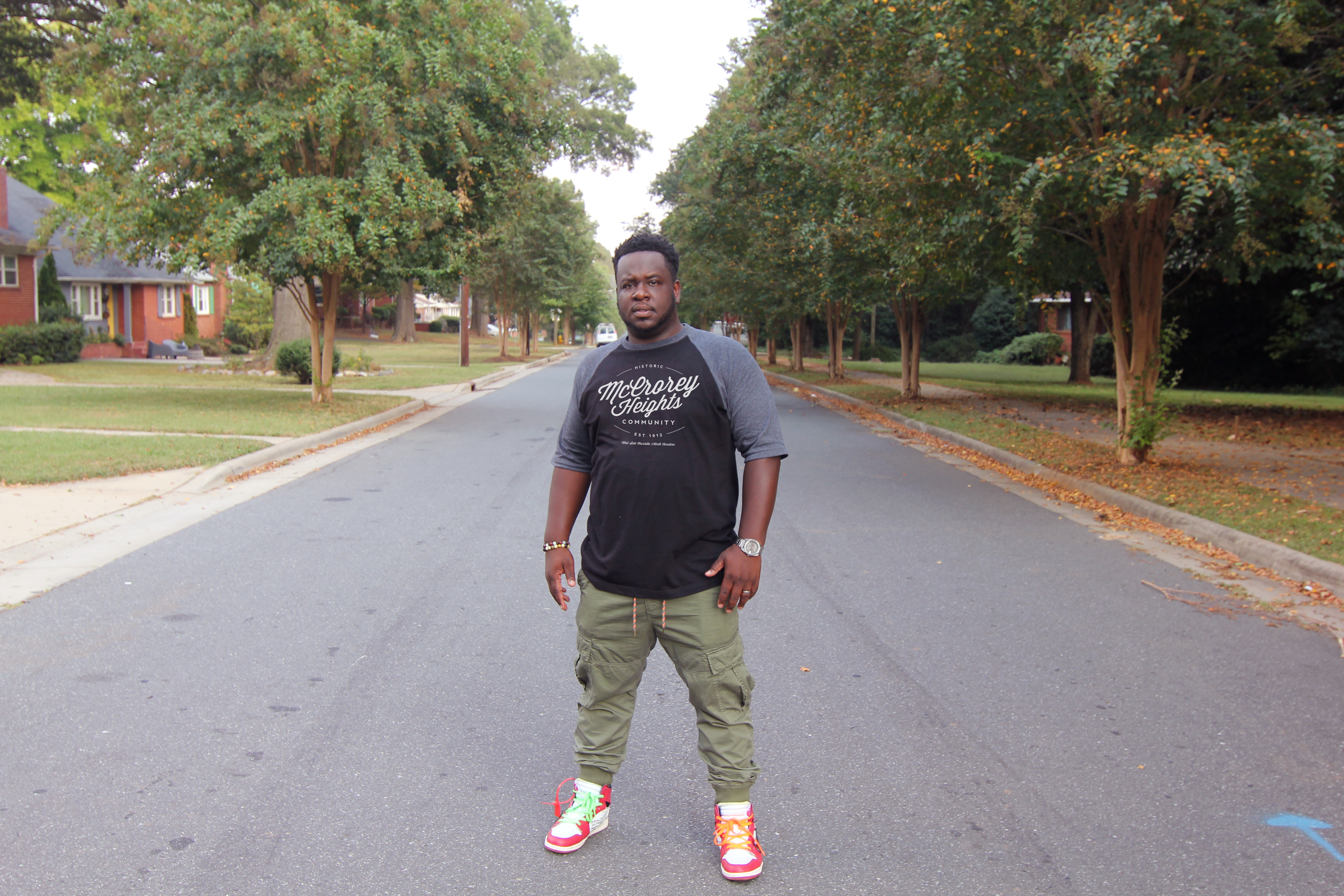
By Tonya Jameson
At a recent Tuesday Morning Breakfast, a weekly community meeting, Winston Robinson stood up during the Q&A and asked the question. It’s the question he often asks: Do you have a specific agenda for Black people to create a more equitable Charlotte?
Robinson, 38, is known for some variation of this question, with an emphasis on Black homeownership. To Robinson, owning a home is the key to lifting poor Black people out of poverty. He and his wife own homes in the communities of McCrorey Heights in west Charlotte and Lockwood near Camp North End.
In recent years, Robinson has made a name for himself as an advocate of homeownership for Black people. In September, he held the third “A Vibe Called Fresh,” a housing fair that educates Black people about homeownership. It was held in Camp North End and was expected to draw at least 600 people.
Robinson’s path to becoming an advocate started in 2016, after he and his wife bought his grandmother’s house in Lockwood. His wife encouraged him to get involved in the neighborhood association. Around the same time, he read the book “The Color of Law” by Richard Rothstein, and the Atlantic Weekly article, “The Case for Reparations,” by Ta-Nehisi Coates.
“I was so angry,” he said.
The two publications detailed how local and federal government policies, such as redlining, were designed to disenfranchise Black people, and how that has affected generations of Black people. Robinson grew up on West Boulevard and was bused to Myers Park High School. West Boulevard was the dividing line, he said. That’s where Blackness began. Robinson said so many young Blacks graduate from college with hopes of buying their first houses, but they don’t start their homeownership journey with savings provided their parents, as is often the case with whites. They have to work harder just to get the down payment, because racist policies prevented their parents from owning homes or owning homes in neighborhoods in which the value of the homes would appreciate and build equity. Few Blacks have generational wealth to give their children a head start.
“I saw how essential housing was to achieve the American Dream,” he said.
The awakening inspired Robinson to help other Black people achieve homeownership, and it also pushed him to press elected officials to do more to help Black people get and keep homes. Robinson often speaks out about the gentrification on the west side. Community advocates have been impressed with his determination.
“The young man is very knowledgeable and caring,” said Carlenia Ivory, a Tuesday Morning Breakfast regular. “I think he’s passionate. He’s asking the right questions when it comes to homeownership and gentrification.”
Ivory sees Robinson at the Tuesday Morning Breakfast, where he often tag teams with his father, artist Tommy Robinson, who is also a regular questioner at the forum. The two usually sit on the left side of the room, a couple of seats apart. They listen intently to every speaker, listening for any morsel of commitment to helping Black people.
In addition to listening and questioning, Robinson is empowering people. In its third year, “A Vibe Called Fresh” grew from an event that educated attendees about the historical significance of the west side, to an event that can help more Black people own homes in west side communities. At this year’s event, Habitat for Humanity, city council member LaWana Mayfield and a real estate broker were among the speakers. Local musicians and artists also participated in the event.
“It’s something that’s long overdue,” Mayfield said of Robinson’s efforts. “He saw something he didn’t like, and as opposed to standing on the side and complaining about it: he chose to create a space where he can educate the community and talk about the real issues on the ground.”
Since Robinson began his efforts, 30 people have told him via social media that he inspired and empowered them to purchase their first home, including a vendor at “A Vibe Called Fresh,” he said.
“It’s pretty dope. That will literally change the direction of their lives,” he said. “This is essential for the existence for Black people in America. If you own the land, you dictate your influence.”
